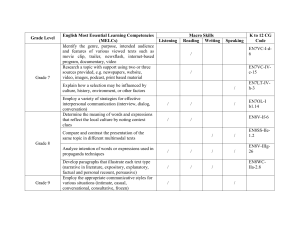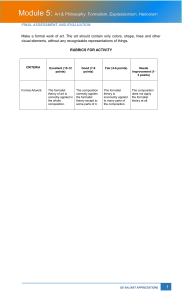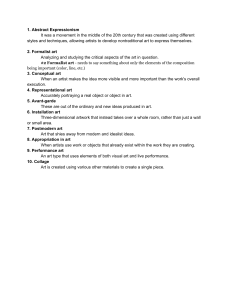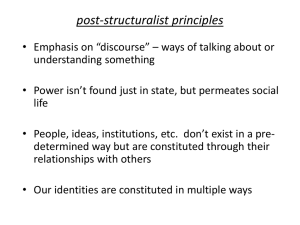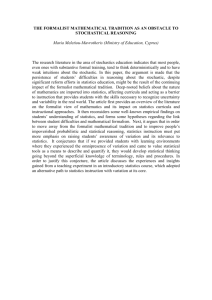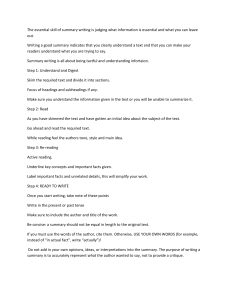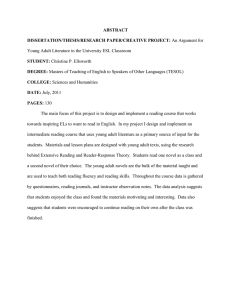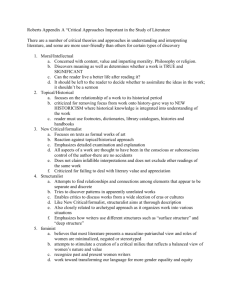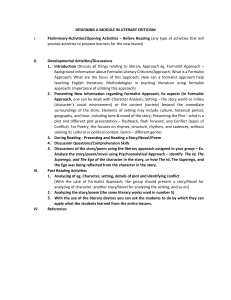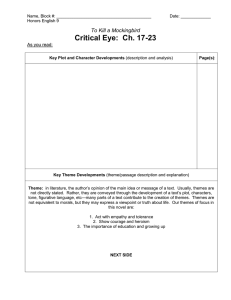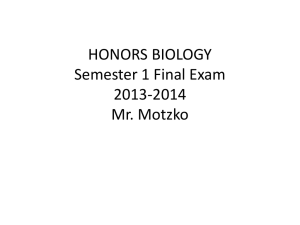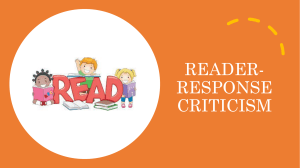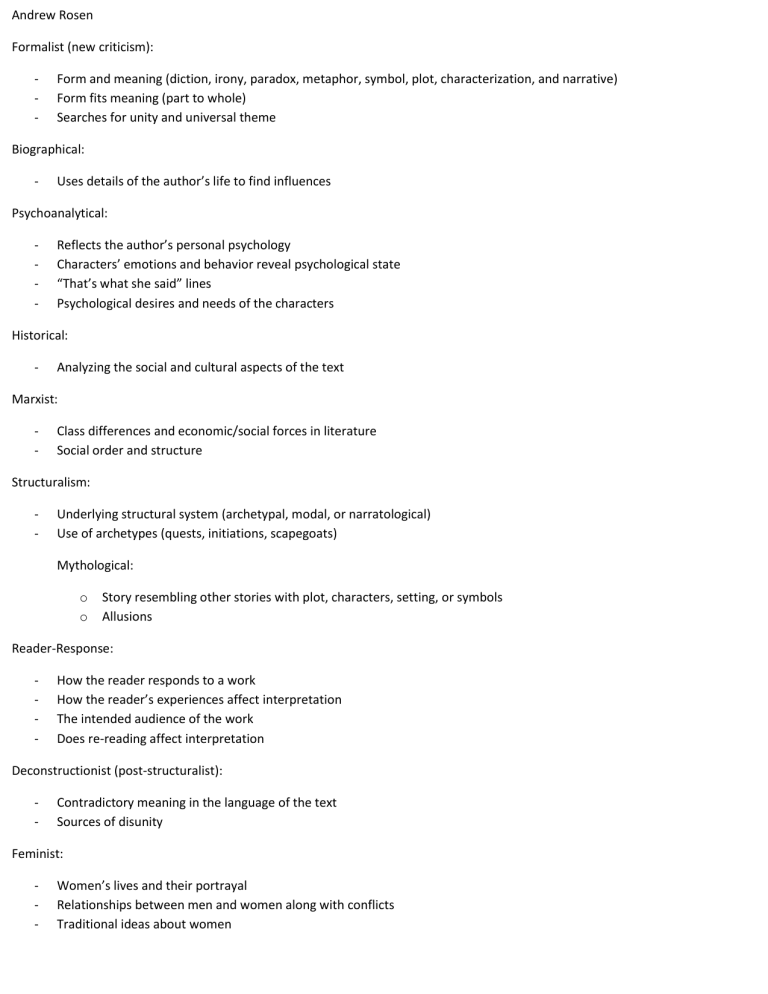
Andrew Rosen Formalist (new criticism): - Form and meaning (diction, irony, paradox, metaphor, symbol, plot, characterization, and narrative) Form fits meaning (part to whole) Searches for unity and universal theme Biographical: - Uses details of the author’s life to find influences Psychoanalytical: - Reflects the author’s personal psychology Characters’ emotions and behavior reveal psychological state “That’s what she said” lines Psychological desires and needs of the characters Historical: - Analyzing the social and cultural aspects of the text Marxist: - Class differences and economic/social forces in literature Social order and structure Structuralism: - Underlying structural system (archetypal, modal, or narratological) Use of archetypes (quests, initiations, scapegoats) Mythological: o o Story resembling other stories with plot, characters, setting, or symbols Allusions Reader-Response: - How the reader responds to a work How the reader’s experiences affect interpretation The intended audience of the work Does re-reading affect interpretation Deconstructionist (post-structuralist): - Contradictory meaning in the language of the text Sources of disunity Feminist: - Women’s lives and their portrayal Relationships between men and women along with conflicts Traditional ideas about women
